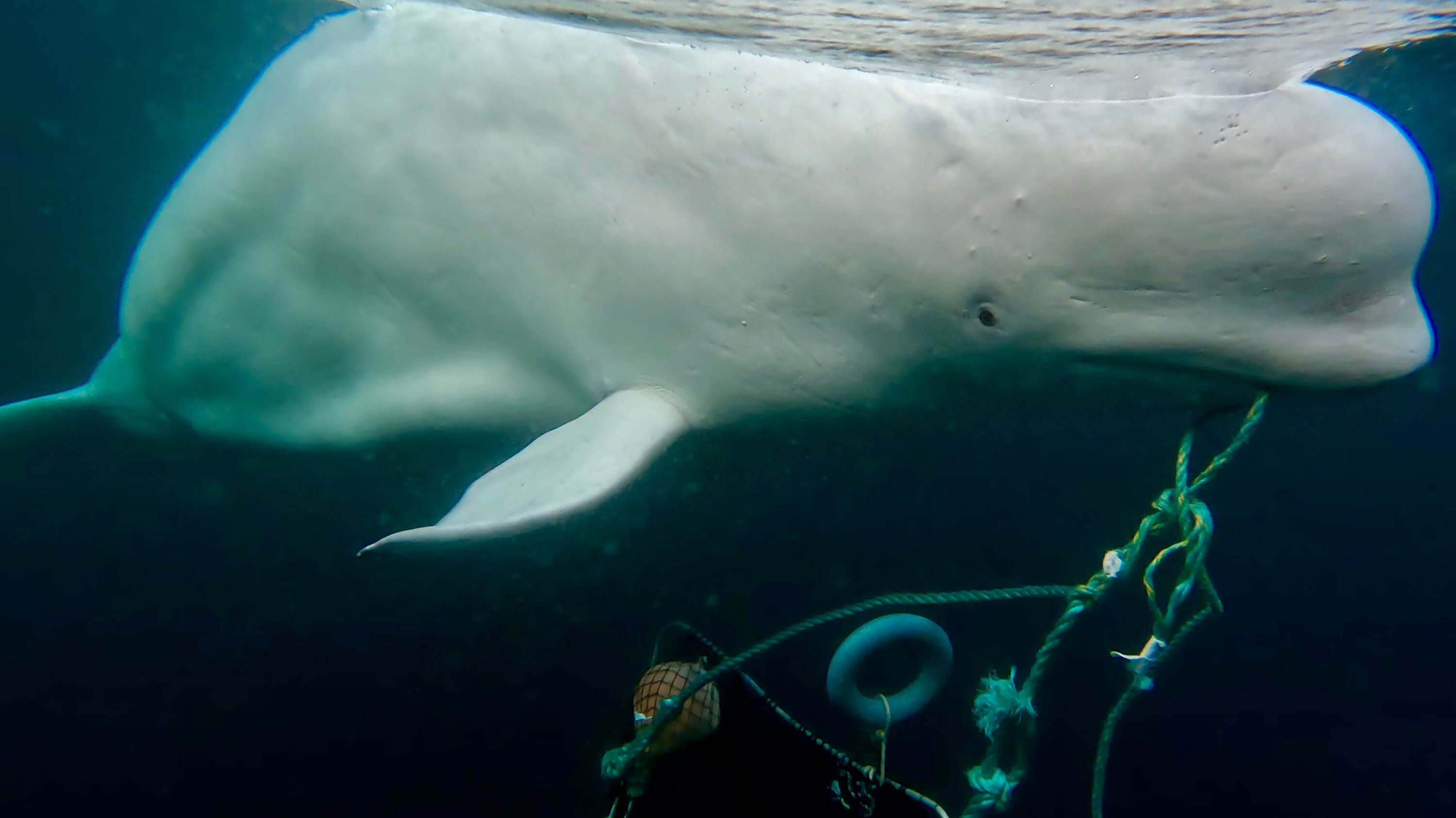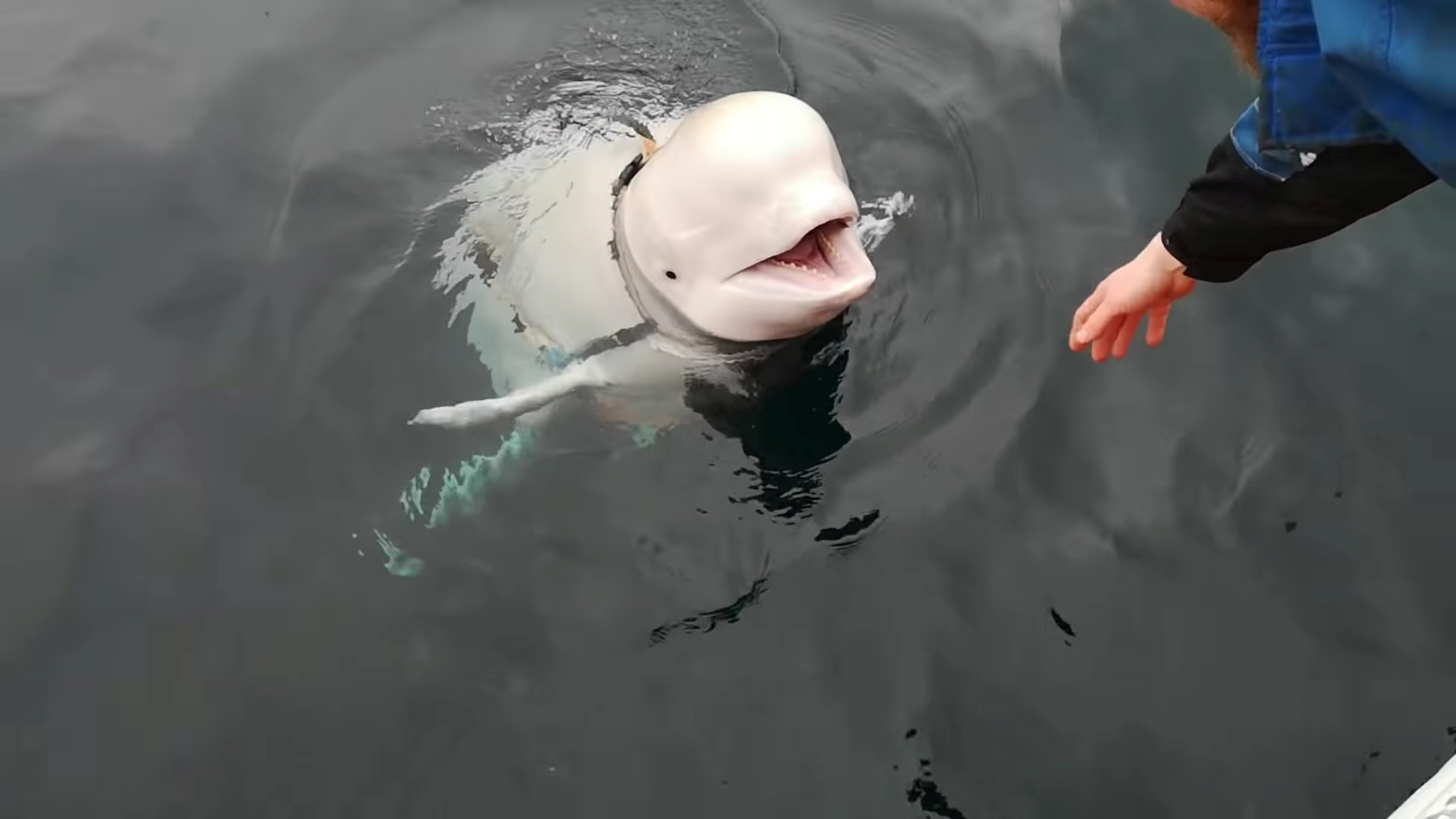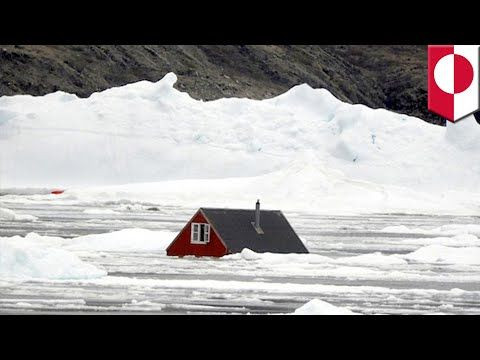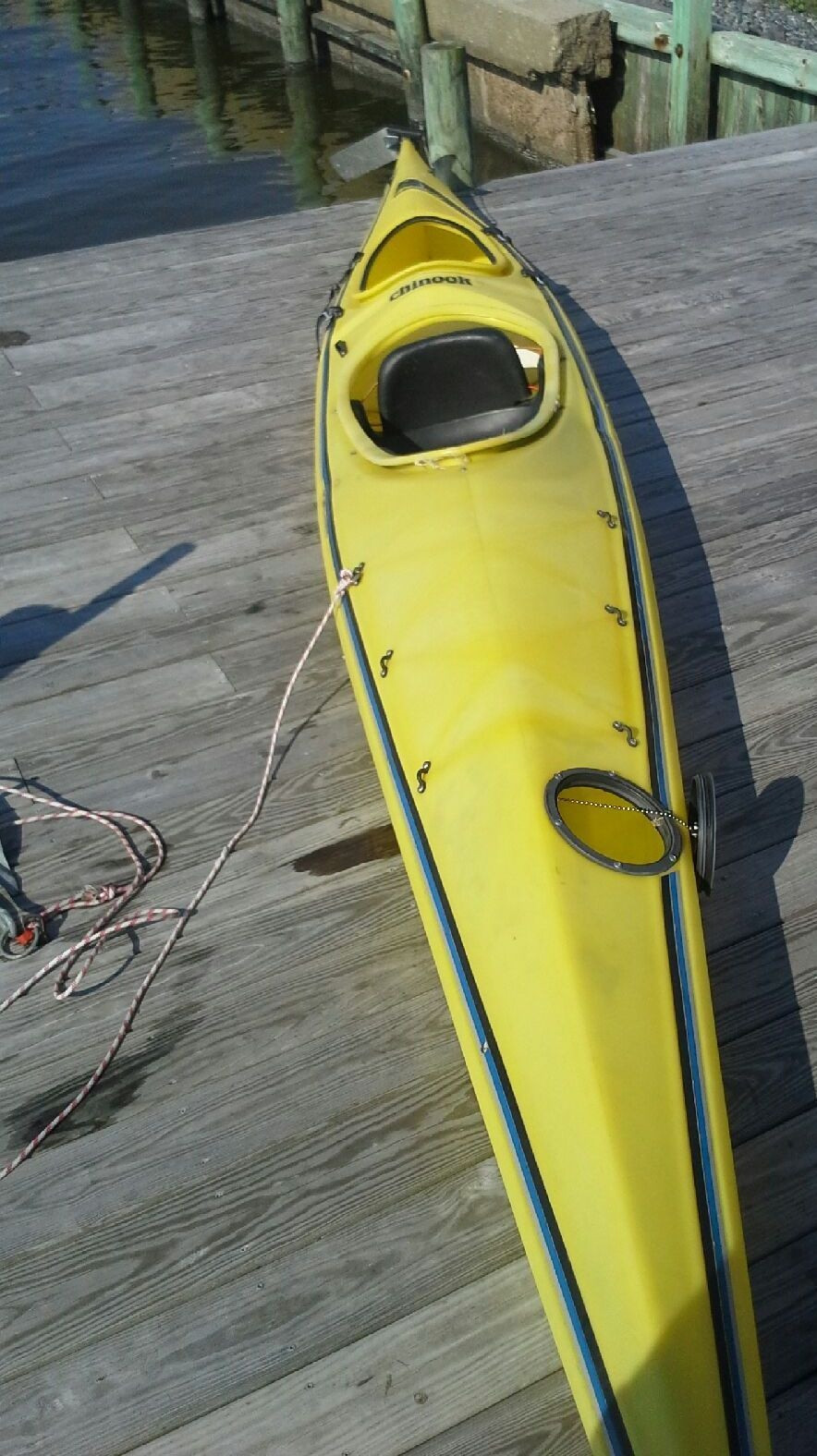A beluga whale believed to have been trained to spy for Russia was found dead in Norwegian waters on Saturday, five years after making the local coast his home.
The lifeless body of Hvaldimir was discovered by a teenage fisherman and his father near the town of Risavika on Saturday morning, according to marine conservationists from the nonprofit Marine Mind.
"Our team arrived to find Hvaldimir floating peacefully in the water," the organization wrote in a social media post. "It is not immediately clear what caused his death, a necropsy will be conducted to determine his early passing."
Several clips on the harness were labeled "Equipment St. Petersburg," fueling a theory that Hvaldimir was trained by the Russian military.
Russia has a track record of training marine animals like dolphins and beluga whales, a practice that dates back to the Soviet Union and continues today. The US Navy has also trained dolphins to clear mines and defend against divers.
Marine Mind, which has been largely dedicated to caring for Hvaldimir since his appearance, said it knows little about the beluga whale's past and can't confirm whether Russia captured him before.
"Hvaldimir was very interested in people and responded to hand signals," the organization said on its website. "Based on these observations, it appeared as if Hvaldimir arrived in Norway by crossing over from Russian waters, where it is presumed he was held in captivity."
But if he was trained by the Kremlin, Hvaldimir seemed to have defected, gradually traveling south toward Norway's more populated regions over the last four years.
He quickly gained celebrity status as videos surfaced of him gently interacting with people, lifting his head out of the water to greet residents and bringing them gifts in his mouth. In late 2019, he was filmed playing fetch with a rugby ball.
His death was a shock to the team, they told local broadcaster NRK.
A resident, Dag Anfindsen, told NRK that he had spotted Hvaldimir in healthy condition just a day before his death, observing the whale diving and swimming for several minutes.
"But we're heartbroken," Strand said, his voice growing quiet. "He will be remembered very fondly by a lot of people. He touched the hearts and lives of so, so many."
The Russian defense ministry did not immediately respond to requests for comment sent outside regular business hours by BI.
Hvaldimir's death comes amid growing tensions in an already frosty relationship between Norway and Russia due to the Ukraine war.
Norway is an active member of the North Atlantic Treaty Organization, which has been intensifying drills and exercises in the region to prepare for a heightened possibility of war with Russia.
US allies in northeastern Europe, particularly the Nordic and Baltic nations, have been vocal about resisting Russia and strengthening their defense industries. In April, Oslo announced it would nearly double its defense budget with an expansion of $56 billion.
Hvaldimir's Story: From Spy Whale to Norwegian Icon
For a supposed spy, Hvaldimir was anything but covert. The white beluga whale had appeared regularly along the coast of Norway since first being spotted in the country’s north in April 2019, wearing a harness and what appeared to be a mount for a small camera. Together with a buckle that read “Equipment St. Petersburg,” that prompted speculation that the animal was an escaped “spy whale” that had been trained for military purposes in neighboring Russia.
The whale seemed to love being around people and quickly captivated local residents, who came up with the name Hvaldimir — a combination of the Norwegian word for whale, “hval,” and the first name of Russian President Vladimir Putin.
Marine biologist Sebastian Strand, who had tracked Hvaldimir’s adventures for the NGO Marine Mind, said he made the discovery while out scouting for the whale and was “heartbroken.”
“He meant more than I can put into words, to me, to the team, and to thousands of people whose lives he had profoundly impacted,” Strand said, adding that Hvaldimir was known to be alive as recently as Friday.
“We were responding to a sighting, but did not know anything happened to him,” he said.
Strand said there were only superficial injuries on Hvaldimir’s body, and that the cause of death was unclear. An autopsy was being performed on Monday, the fisheries directorate said.
The Mystery of Hvaldimir's Origins
Even as locals speculated that Hvaldimir might be on a clandestine mission for the Kremlin, Moscow never claimed the alleged Russian operative as its own.
The military use of marine animals is well documented. Navies around the world, including those of the Soviet Union and the United States, famously sought to tame cetaceans for spy missions during the Cold War, training them to retrieve underwater objects, detect mines and even for defense operations.
But Hvaldimir could also have been a therapy whale, according to other theories, which could explain the interest in people and responses to hand signals.
“It appeared as if Hvaldimir arrived in Norway by crossing over from Russian waters, where it is presumed he was held in captivity,” Marine Mind says on its website.
A Whale Who Loved People
The whale’s solitude and behavior was atypical of its species, which generally moves in groups and inhabits remote Arctic areas. Hvaldimir was known to be a fan of catamarans around Norway, regularly following them from one fish farm to another, and hunting for food underneath the fishing nets.
“He has stayed close to fish breeding farms, and has been able to catch fish that graze on surplus feed from the farms,” the fisheries directorate said.
Over the years, Hvaldimir’s movements around densely populated areas had raised concerns about the risk of injury from boats and fishing gear.
“For now, we work towards a final dignity of making sure he is kept well and examined so his death will not be a mystery,” Strand said. “But no matter what now, a beloved friend of many is gone.”
Final Farewell to a Beloved Friend
Hvaldimir’s presence was well-known in Norway’s waters, and marine nonprofits used his story to promote marine conservation.
“Over the past five years, he touched the lives of tens of thousands, bringing people together in awe of the wonders of nature. His presence taught us about the importance of ocean conservation, and in doing so, he also taught us more about ourselves,” Marine Mind wrote.
The organization said it was working to move Hvaldimir to his new home by September, which would have allowed him to live potentially another 50 years.
Hvaldimir’s death is a reminder of the fragility of life, even for creatures as majestic as beluga whales. It also serves as a reminder of the importance of protecting our oceans and the animals that call them home.


















